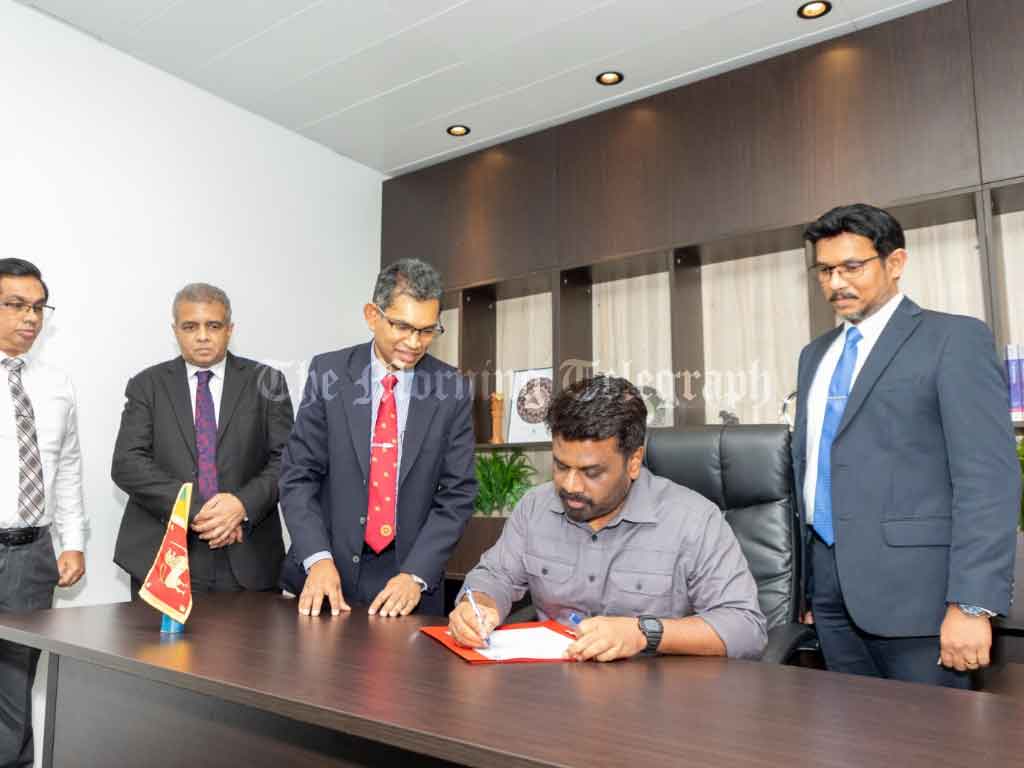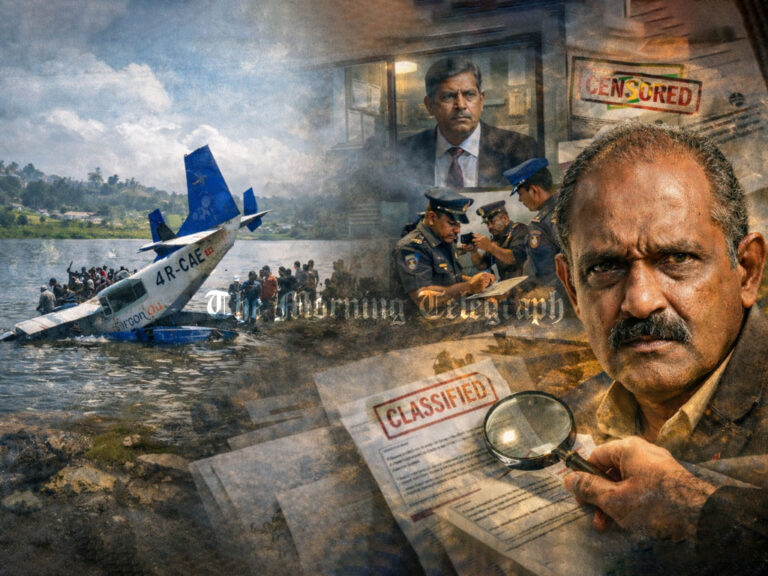
In a bid to transform Sri Lanka’s economy, President Anura Kumara Dissanayake has called for a national effort to prioritize digitalization, emphasizing that the future of the country’s economic growth lies in technology rather than the continued construction of physical infrastructure. Speaking after taking office as the Minister of Digital Economic Affairs on December 5, the President addressed the ministry’s officials, urging all sectors of society, especially professionals and experts, to engage actively in the government’s push to digitalize the nation.
President Dissanayake stressed that digitalization is not just a tool for improving economic activities but is vital for increasing productivity across various sectors and enhancing the nation’s overall economic performance. He reiterated that the government’s central goals include poverty alleviation, social reform, and the widespread implementation of digital technologies. He further pointed out that merely constructing buildings and infrastructure will not lead to genuine national development. Reflecting on the country’s past, the President noted that a dedicated construction ministry existed two decades ago, but today, every ministry seems to focus primarily on building projects, often at the expense of more pressing developmental issues.
The President also highlighted the need for educational reforms, recalling his discussions with university chancellors and Ministry of Education authorities last year. He remarked that, despite the importance of educational advancements, those meetings were consumed by debates on building construction, with little attention given to the pressing need for reforms in the education system itself. This lack of focus on essential reforms has contributed to inefficiencies that hinder national progress, the President pointed out.
In his address, President Dissanayake used the example of the Ministry of Labor, which owns two large buildings but continues to face long queues of people seeking services, to demonstrate that infrastructure alone does not solve systemic problems. He emphasized that the country’s challenges can only be effectively addressed through digital solutions, which can streamline processes, improve service delivery, and reduce inefficiencies.
The President also outlined an ambitious roadmap for the future, with the Ministry of Digital Economic Affairs aiming to generate $15 billion in revenue from the digital economy within the next five years. This target is part of the government’s broader initiative to create a thriving digital economy that will foster innovation and create new job opportunities. A key component of this vision is the plan to expand the digital workforce to 200,000 skilled professionals by 2029, a crucial step in ensuring that the country is well-prepared for the future.
To support these objectives, the government aims to fully digitize the country within the next five years, ensuring that all public services and sectors are integrated into a digital framework. This initiative aligns with global trends in technological advancement and positions Sri Lanka to compete in the international digital economy.
During the event, Engineer Eranga Weeraratne was also appointed as the Deputy Minister of Digital Economy, a move that the President believes will further strengthen the government’s digitalization efforts. With this new leadership and a clear focus on digital transformation, the government is aiming to revolutionize Sri Lanka’s economy, providing a foundation for sustainable growth and a more efficient, connected society.




